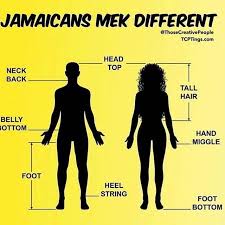I came across a Twitter thread today (it begins here) which argued that diversity & inclusion is “systematically marginalizing disadvantaged people from majority groups”. Having read the full argument and thought about it, the assertion has a number of problems in my view. The argument suffers from a fundamental error of attribution. If any member of the majority is disadvantaged, it is in economic status—and capitalism is the primary culprit there. The diversity part of D & I only began in the 1970s and 1980s, adding barriers to inclusion as a focus in the 1990s. Capitalism by contrast has a head start of approximately 300 years.
Capitalism has always exploited the economically-disadvantaged. Ethnicity is a variable often used to determine which of the poor to exploit first. This doesn’t mean that white people could not be disadvantaged—some of them certainly are. We should be clear that whiteness did not always include Eastern Europeans, Italians, Scots-Irish people, etc—they faced real limits in what kind of work they could do, where they could live, etc for many years until whiteness expanded to include them.
That said, Thomas Chatterton Williams (among many others) has already noted that historically, economic alliances between the poor that span ethnicities have been purposely attacked and broken by those who serve the interests of capital. If you’ve read about The Great Migration (black people fleeing north to escape domestic terrorism from the KKK and others between 1915 and 1970), black migrants arriving in the north often faced discrimination and violence from newly-arrived immigrants not yet even fully-included in whiteness.
Beyond the attribution error, the argument fails on a second but related front—the assertion that a single ideology built around D & I is marginalizing poor whites. At least one other ideology exists regarding D & I—an ideology built to oppose D & I. This ideology scapegoats some immigrants for blame when it comes to the economic disadvantage suffered by certain members of the majority—even as the capitalists it supports continue to exploit cheaper, non-white labor for increasing profit. Perhaps even more insidiously, it selects certain other immigrants as proof that capitalism is somehow meritocratic and just when quite often it is not.
To extend the analysis to higher education, the argument against D & I weakens even further by skipping over the gigantic inflation of tuition prices, the continuing existence of legacy admissions (which predominantly favor the majority group, and the wealthiest members of that group), and the role that gifts to schools from wealthy donors have in admission of their children, you should question it. Selective (if not dishonest) arguments like this are why my alma mater (which still uses legacy admissions) was ordered by a court ruling to open its Benjamin Banneker scholarship to non-black students. It’s how Abigail Fisher received a ruling 7-1 in her favor from the Supreme Court on the basis of the 14th Amendment—one of 3 passed during Reconstruction to recognize and protect the citizenship of newly-freed slaves.
I will extend my observations further, into K-12 education. The author of the Twitter thread touched not at all on residential segregation—or the funding formulas primarily dependent on property taxes—which have the effect of reinforcing and perpetuating inequitable access to quality teachers and facilities. I’ve read any number of news stories and watched a documentary about wealthier, whiter school districts breaking away from poorer and more diverse ones. This cannot help but impact what every incoming freshman class at colleges and universities nationwide looks like. This doesn’t mean that there aren’t white people suffering from poverty as well. But a combination of deliberate government action, followed by neglect, combined with white flight does mean the impact of poverty is disproportionately felt by black and brown people. Zoning decisions as well (for example) tend to result in facilities with negative health impacts being situated near neighborhoods that are predominantly populated by black and brown people.
The reality of residential segregation prompts me to touch on a particular pair of tweets in this thread that stood out for me:
“Another thing that bothers me about these movements is their condescending behaviors. Yesterday, a proponent told me I was tone policing persons of color. I wasn’t. I was tone policing an ideology.”
“Whether you believe it or not, this ideology argues that it is totally reasonable to suggest that, systematically, a woman or POC understands *the* majority viewpoint, but members of the majority cannot understand members of minority group.”
As a black man who has navigated majority white schools and corporate environments successfully enough to begin making a six figure salary around the time I turned 33, having at least some understanding of the majority viewpoint in those particular context was necessary to achieve some level of success. I’ve watched enough white flight in real time—even in an allegedly liberal place like Montgomery County, Maryland—over the decades I’ve lived here to be relatively sure that a majority that doesn’t even want to be my neighbor probably isn’t terribly interested in understanding me either.
Whatever you think of D & I efforts in either the academic or corporate spheres (and as an aside I don’t personally believe that representation can or should match nationwide demographics in every field), the argument made in the thread suggests that D & I is somehow more powerful than capitalism—an assertion which beggars belief (to put it mildly).
Like this:
Like Loading...
